The Army and Operation Chicken Run
 Maj. Jessica McCoy, an Army veterinarian and member of Baghdad embedded Provincial Reconstruction Team number four, holds up a young chick belonging to an Iraqi poultry farmer. “Operation Chicken Run”, supported by the ePRT, is helping develop the intensive farming capacity and providing revenue alternatives to Iraqi farmers who have discontinued support for al-Qaida and other insurgent groups.
Maj. Jessica McCoy, an Army veterinarian and member of Baghdad embedded Provincial Reconstruction Team number four, holds up a young chick belonging to an Iraqi poultry farmer. “Operation Chicken Run”, supported by the ePRT, is helping develop the intensive farming capacity and providing revenue alternatives to Iraqi farmers who have discontinued support for al-Qaida and other insurgent groups. Maj. Jessica McCoy’s helmet is welcome shelter to a young chick on a farm in southern Baghdad province. McCoy is an Army veterinarian and member of Baghdad embedded Provincial Reconstruction Team number four.
Maj. Jessica McCoy’s helmet is welcome shelter to a young chick on a farm in southern Baghdad province. McCoy is an Army veterinarian and member of Baghdad embedded Provincial Reconstruction Team number four. Thousands of baby chicks, one of the first steps in the renewed poultry and egg industry sit in warming shelves at an Iraqi poultry farm just outside of Mahmudiyah.
Thousands of baby chicks, one of the first steps in the renewed poultry and egg industry sit in warming shelves at an Iraqi poultry farm just outside of Mahmudiyah. Eggs sit on incubator shelves, part of the effort by the Baghdad embedded Provincial Reconstruction Team number four to help Iraqi farmers rebuild the once-thriving poultry industry in southern Baghdad province.
Eggs sit on incubator shelves, part of the effort by the Baghdad embedded Provincial Reconstruction Team number four to help Iraqi farmers rebuild the once-thriving poultry industry in southern Baghdad province.Poultry Drives Hope: South of Baghdad, Coalition Forces Work With Poultry Growers to Revitalize a Once Thriving Iraqi Chicken Industry
By Tim Kilbride
Multi-National Division – Central Public Affairs Office
BAGHDAD — In this case the chicken will come first. With nearly five years of war taking a heavy toll on Iraq’s domestic poultry industry, overall chicken and egg consumption is down in the country, while 40 percent of the commercial eggs consumed in Baghdad are imported.
In Mahmudiyah, an agricultural community south of the Iraqi capital and a traditional hub of Baghdad province’s poultry industry, some of the most pervasive violence of the war effectively halted production of a variety of poultry, broilers and eggs. But with recent security improvements, achieved through the cooperation of local residents and a counter-insurgency strategy implemented by coalition forces, an opportunity has been gained to resume production.
As part of a wider economic revitalization and job-creation program taking place across provinces south and east of Baghdad, civil affairs specialists with the U.S. military’s Multi-National Division – Center are now taking steps to make Iraq’s poultry growers competitive again within the domestic market.
The military is working hand-in-hand with agricultural experts from a U.S. State Department-led embedded provincial reconstruction team (ePRT) to identify poultry farmers and band them together into a form of regional cooperative. They named the cooperative the Mahmudiyah poultry association.
The military branded its own efforts more creatively: “Operation Chicken Run.”
Like other military initiatives, there is a security angle to it. Employment and economic prosperity, coalition commanders argue, breed stability. Holding on to the pockets of security that were created with combat offensives throughout summer and fall 2007 requires the continued support of local populations, so coalition troops are now focused on building economic and government capacity in the communities they secured. In poultry they see the chance for a quick victory based on the industry’s past in Iraq.
A large percentage of chicken consumed in Iraq now comes from imports of frozen meat from the United States and Brazil. Making Iraqi-grown chicken and eggs competitive in domestic markets will require economies of scale. Thus the need for pooled resources and a regional poultry association to act as a coordinating body, said Maj. Jessica McCoy, an Army veterinarian based in nearby Yusufiyah and a member of Baghdad’s ePRT number four. The team is embedded with the 3rd Brigade Combat Team, 101st Airborne Division (Air Assault), from Fort Campbell, Ky.
“Right now about 40 percent of the commercial eggs consumed in Baghdad are imported,” McCoy said. “This chicken farmers’ association will assist local egg-laying operations to eat into that share by providing a source of inexpensive high-quality feed, and thereby increase Iraq’s domestic fresh egg consumption.”
McCoy, a native of Wellesley, Mass., is joined in the effort by Capt. Paul Hester, an ePRT agri-business specialist who worked closely with farmers’ associations and cooperatives in the United States. Hester noted that Iraqi farmers are familiar with the principles behind the co-op, and had similar arrangements in place in the past, but require coaching to move beyond their experience under the former state-controlled system and into a free market.
“The Iraqi farmer has the basic knowledge of the association process from his past. Under Saddam (Hussein), the industries were often integrated, but the control was with the government,” Hester said.
“With the formation of the Mahmudiyah poultry association we are putting the knowledge of the farmers, both in farming practices and working in an integrated system, to work for them, not for the government,” he explained.Hester and McCoy met and interviewed more than 100 broiler growers to get a baseline feel for capacity and requirements before advancing with their plan to link the farmers.
“We are assisting them to increase their abilities and profits by working together, buying from each other, and developing items such as breeding stock, feeds, and markets,” Hester said.
Among the most important steps is actually distributing chicks to farmers to enable them to resume self-sufficient operations. But before farmers will be ready to receive chicks, the farms themselves must undergo renovations and the infrastructure needed to support the industry must be repaired and improved.
The ePRT is seeking assistance from the U.S. Agency for International Development’s Community Stabilization Program to help individual farmers repair their facilities. They are also seeking to repair the association’s processing plant. Additional funds will come from military and State Department grants, as well as from the government of Iraq.
The system McCoy and Hester envision has Iraqi farmers supporting other members of the association by buying chicks and feed from their partners, selling grown chickens to other partners, and in turn processing the meat or selling live chickens at market. Under that system, the coalition’s primary role would be to get the association and its members up and running before handing off management responsibility.
“Already we can see a rejuvenation of this industry here. In the next year this district’s industry will employ an estimated 1,300 people, compared with 50 today,” McCoy said.Additional employment will be generated as supporting businesses like trucking, road construction and cold storage expand to meet demand, McCoy explained.
“It will boost the district economy and breathe new life into a region’s industry by creating jobs. This will be a permanent improvement for the Mahmudiyah qada,” McCoy said.
“Six months ago, there were four active broiler farms in operation in our district. Today there are seven. In twelve months we anticipate there will be more than fifty,” the major observed.
Despite improved economies of scale, the military advisors still expect the Iraqi chicken to sell for slightly more than imported meat. However, the difference in price should not impact competitiveness, McCoy said.
“Ours will be fresh and Halal-slaughtered, according to Muslim tradition,” McCoy said. “We will not compete on price. We will win by offering a fresh locally grown product, without hormones or preservatives, which our research shows has a select, ready market,” she added.
A side benefit, the major explained, is that the typical Iraqi diet is low in protein, and an increase in the amount of low-cost meat available will improve nutrition.
Another unexpected benefit, the officer noted, is that economic cooperation serves to bridge the sectarian divide that has emerged between Sunni and Shia communities in Iraq.
“Already we have 14 tribes represented, and they have all agreed to work together to make this happen,” McCoy said.
“This project will be a model for Iraqi farmers and business owners to show them that they can work together, regardless of their tribal or religious ties, and provide a higher standard of living for their families,” Hester added.
One Mahmudiyah farmer, sheik Suleiman, provided a more direct account of the changes he envisions for his community as a result of the undertaking.
“This farmers’ association will bring people together. If any one of us fails, we all fail. This will force linkages among area farmers, those that run the hatcheries, feed mills, and the processing plant with the growers. It will bring people together regardless of their background - Sunni or Shia, Anbari or Zobai. We are farmers” Suleiman said.
“I fought al-Qaida with bullets before you (Americans) were here. Now I fight them with chickens,” the sheik said.
McCoy provided another motivation for her and Hester’s work with the farmers.
“As people realize the close association between security and increased standard of living, they will reject al-Qaida,” she said. “When that happens, the security becomes self-sustaining and we can all come home.”
(Ray McNulty, MND-C PAO, contributed to this article.)
*****************
I know this is a long piece about poultry - but, what it is really about is hope and success and the future for the Iraqis. As agriculture succeeds, so will other things succeed. Without agriculture, there is no pattern for cooperation and food resources. This is truly GOOD NEWS!
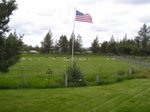


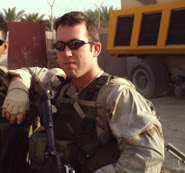










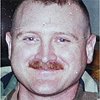


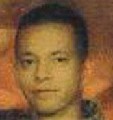









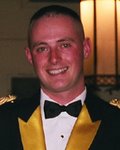






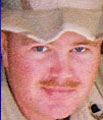
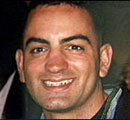





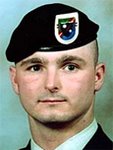




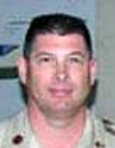
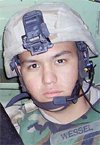






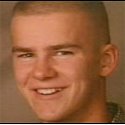
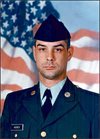


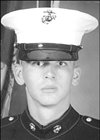
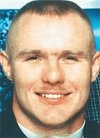
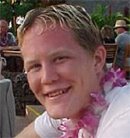

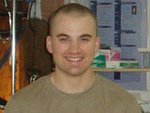




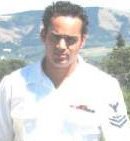

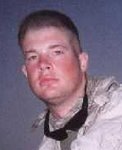
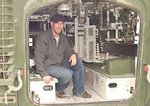
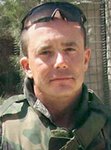



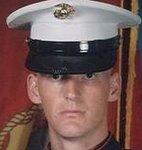
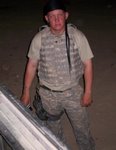
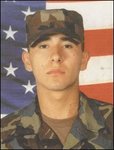
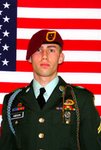

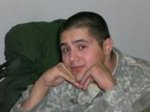
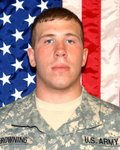





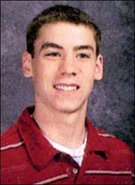
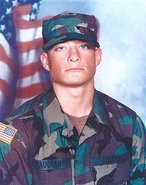
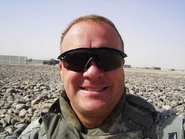
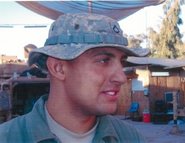
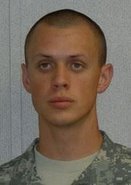
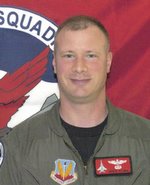
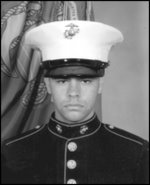
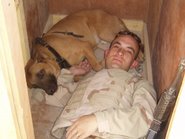
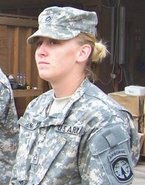

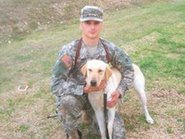

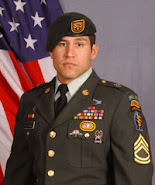

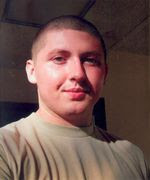



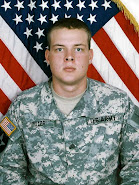
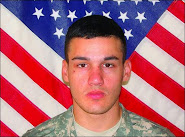



5 comments:
Who would ever even thought about that. That is so cool
It is good news and just one more example of the important contribution being made by your fine servicemen and woman. Off topic, have added this site to the blogroll.
See this, this right here is what separates America from the swill that is everyone else. We are the only ones who don't just go, fight a war then say hasta la vista.
We give fuzzy cute little baby chicks. I love my country.
I know major McCoy and CPT Hester they did a great job in Yusufiyah and Mahmudiyah area helping Local Agr. economic improvement best wishes for them So for SFC Kramer and all PRT team#4
Dr.Mohammed Alanbari(veterinarian)
Dr. Alanbari~
Thank you so much for your comments - It is an impressive program done by some great people!
Post a Comment